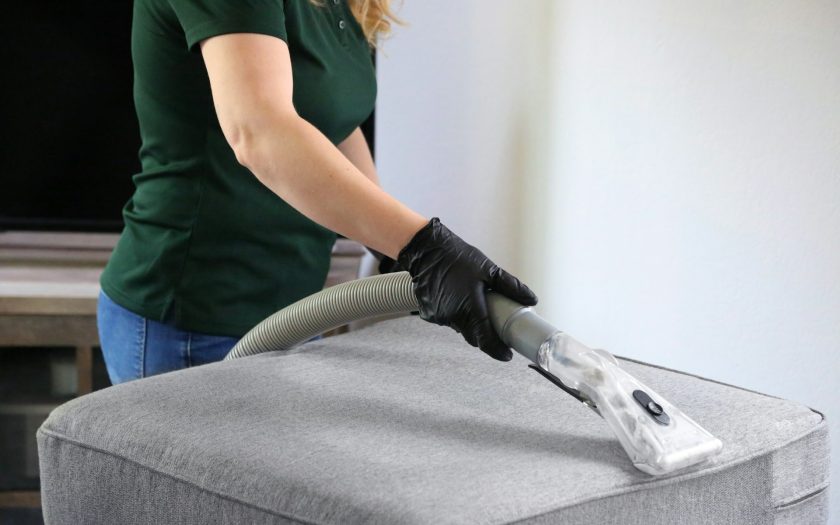Professional Cleaning Services for Airbnb Hosts: Impress Every Guest
Airbnb has revolutionized the way we travel, providing unique accommodations that can enhance any getaway. For hosts, this platform opens doors to new opportunities and experiences. However, with great opportunity comes great responsibility especially when it comes to cleanliness. In the competitive world of short-term rentals, a pristine space is not just an expectation. Guests arrive looking for comfort and a welcoming atmosphere. The first impression they get as they step through your door sets the tone for their entire stay. A clean environment signals professionalism and attention to detail, reassuring guests that they made the right choice in selecting your property over others. That’s why many savvy hosts rely on a trusted cleaning company kuala lumpur to ensure their space is consistently spotless and guest-ready.
The Importance of a Clean Airbnb
Cleanliness plays a crucial role in the success of Airbnb. Guests expect a spotless environment when they arrive, and first impressions matter significantly. A clean space reflects professionalism and attention to detail. It shows that you care about your guests’ comfort and well-being. This can lead to better reviews and more bookings. Moreover, hygiene is paramount. With heightened awareness around cleanliness due to recent global events, travelers are more cautious than ever. A pristine property not only meets their expectations but also puts their minds at ease.
Benefits of Hiring Professional Cleaning Services
Hiring professional cleaning services offers Airbnb hosts a range of benefits that can elevate the guest experience. First and foremost, these experts have a keen eye for detail, ensuring every nook and cranny is spotless. Time is another crucial factor. Hosts often juggle multiple responsibilities from managing bookings to responding to guests. Outsourcing cleaning frees up valuable hours that can be better spent enhancing the overall guest stay. Moreover, professional cleaners use industry-grade products and equipment not typically found in household settings. This results in deeper cleaning and more thorough sanitization.

What to Look for in a Cleaning Service for Airbnb Hosts
When searching for a cleaning service tailored to Airbnb hosts, consider reliability as your top priority. A dependable team will show up on time and meet your scheduling needs without fail. Experience in short-term rentals is also crucial. Look for services familiar with the specific requirements of Airbnb properties, including quick turnovers and attention to detail. Check reviews and testimonials from other hosts. Positive feedback indicates trustworthiness and quality work.
Cost Comparison: Professional Cleaning vs. DIY
When it comes to maintaining your Airbnb, the decision between professional cleaning services and DIY efforts can be daunting. On one hand, DIY cleaning may seem like a cost-effective option. You save money upfront by handling everything yourself. However, consider the time spent scrubbing floors or washing linens instead of focusing on guest interactions or marketing your property. Professional cleaners bring expertise and efficiency that often outweigh their cost. They know how to tackle stubborn stains and ensure every corner is spotless in record time.
Additional Services to Consider for an Exceptional Guest Experience
To truly elevate the guest experience, consider adding extra services that go beyond basic cleaning. Personalized touches can make a significant difference. One option is to offer laundry services for guests who stay longer. Clean linens and towels enhance comfort and convenience. Another idea is to provide welcome kits filled with local snacks or beverages. A thoughtful gesture like this can leave a lasting impression. Consider stocking essentials such as toiletries or kitchen supplies. Having these items readily available ensures guests feel at home from the moment they arrive.

How to Maintain a High Standard of Cleanliness with Regular Services
Consistency is key when it comes to maintaining a high standard of cleanliness for your Airbnb property. Regular cleaning services help ensure that each guest arrives in a spotless environment, setting the stage for positive reviews and repeat bookings. Scheduling cleanings between guests can eliminate lingering odors and dust accumulation. A fresh space promotes comfort and relaxation, enhancing the overall experience. Regular services also provide an opportunity to address maintenance issues before they escalate. Cleaners often notice small repairs that might go unnoticed during busier periods.
In Conclusion
Elevating your Airbnb experience goes hand in hand with providing a clean, welcoming environment for your guests. Professional cleaning services can significantly enhance the overall quality of your rental. With their expertise, you ensure that every corner is spotless and inviting. Think about the impression a gleaming bathroom or fresh linens make on guests. These details matter more than you might realize. They contribute to positive reviews and repeat bookings.






 Instead of a traditional sit-down dinner, imagine your guests mingling and enjoying a variety of interactive food stations scattered throughout the venue. From build-your-own taco bars to live pasta stations where chefs whip up personalized dishes right before their eyes, the options in these 2024 wedding trends are simply endless. Interactive food stations not only provide delicious bites but also create a fun and engaging experience for everyone involved.
Instead of a traditional sit-down dinner, imagine your guests mingling and enjoying a variety of interactive food stations scattered throughout the venue. From build-your-own taco bars to live pasta stations where chefs whip up personalized dishes right before their eyes, the options in these 2024 wedding trends are simply endless. Interactive food stations not only provide delicious bites but also create a fun and engaging experience for everyone involved. As the sun sets on your magical
As the sun sets on your magical 



 There are two main types of rotary encoders: incremental and absolute. Incremental encoders measure changes in position relative to a starting point, while absolute encoders provide the exact position at all times. Understanding the differences between the two and selecting the appropriate type for your application is crucial. Consider factors such as resolution, accuracy, and the required range of motion to ensure the best results.
There are two main types of rotary encoders: incremental and absolute. Incremental encoders measure changes in position relative to a starting point, while absolute encoders provide the exact position at all times. Understanding the differences between the two and selecting the appropriate type for your application is crucial. Consider factors such as resolution, accuracy, and the required range of motion to ensure the best results. Proper installation and mounting of the rotary encoder are vital to achieving accurate measurements. Ensure that the encoder is securely fastened to prevent any unwanted movement during operation. Align the encoder with the rotating shaft correctly and check for any misalignment or mechanical play. Optimal installation and mounting will minimize errors and guarantee consistent results.
Proper installation and mounting of the rotary encoder are vital to achieving accurate measurements. Ensure that the encoder is securely fastened to prevent any unwanted movement during operation. Align the encoder with the rotating shaft correctly and check for any misalignment or mechanical play. Optimal installation and mounting will minimize errors and guarantee consistent results.







 In addition to routine cleaning, commercial cleaning
In addition to routine cleaning, commercial cleaning 
 As an employer, defining what you want from your
As an employer, defining what you want from your 
 Holding employees accountable is a key element in developing them for long-term success. Accountability means taking ownership of one’s actions and being responsible for the outcomes. As a manager or employer, it is essential to set clear expectations and measurable goals to monitor progress effectively. When employees fall short of their responsibilities, promptly addressing the issue is important. Ignoring problems can lead to bigger issues down the line.
Holding employees accountable is a key element in developing them for long-term success. Accountability means taking ownership of one’s actions and being responsible for the outcomes. As a manager or employer, it is essential to set clear expectations and measurable goals to monitor progress effectively. When employees fall short of their responsibilities, promptly addressing the issue is important. Ignoring problems can lead to bigger issues down the line.

 Provide your employees with resources to help them develop their skills, knowledge, and competencies. You can do this by investing in professional development courses, offering learning opportunities, and providing additional training when needed.
Provide your employees with resources to help them develop their skills, knowledge, and competencies. You can do this by investing in professional development courses, offering learning opportunities, and providing additional training when needed.
 It is important to stay hydrated during winter, especially if you are working out. When you sweat, you lose not only water but also electrolytes. Drinking fluids helps replace lost fluids and electrolytes. Sports drinks can be a good option for athletes because they contain electrolytes. Avoid beverages that contain caffeine, such as coffee and energy drinks, as they can dehydrate you.
It is important to stay hydrated during winter, especially if you are working out. When you sweat, you lose not only water but also electrolytes. Drinking fluids helps replace lost fluids and electrolytes. Sports drinks can be a good option for athletes because they contain electrolytes. Avoid beverages that contain caffeine, such as coffee and energy drinks, as they can dehydrate you. Warming up before your workout and cooling down afterward is important all year round. In winter, it is especially important to warm up properly. It helps prevent injuries and improve your performance. A proper cool down is also important, so you don’t get too cold after working out. Make sure to spend at least 5 minutes warming up and cooling down.
Warming up before your workout and cooling down afterward is important all year round. In winter, it is especially important to warm up properly. It helps prevent injuries and improve your performance. A proper cool down is also important, so you don’t get too cold after working out. Make sure to spend at least 5 minutes warming up and cooling down.

 In recent years, there has been a major push toward developing smart solutions for the home. This includes everything from automatic soap dispensers to toilets that can be controlled with a smartphone. While some of these innovations are more gimmicky than practical, others have the potential to make a real difference in the way we live our lives.
In recent years, there has been a major push toward developing smart solutions for the home. This includes everything from automatic soap dispensers to toilets that can be controlled with a smartphone. While some of these innovations are more gimmicky than practical, others have the potential to make a real difference in the way we live our lives.
 If you are yet to start trading Bitcoin, you may not know that there are different types of exchanges. There are those like Immediate edge that only deal in cryptocurrency and those that deal in fiat currencies. You can also find exchanges that only accept wire transfers. With an automated system, you can trade on multiple exchanges simultaneously. This gives you a better chance of making a profit. Although it is not guaranteed, you are more likely to make a profit if you trade on multiple exchanges.
If you are yet to start trading Bitcoin, you may not know that there are different types of exchanges. There are those like Immediate edge that only deal in cryptocurrency and those that deal in fiat currencies. You can also find exchanges that only accept wire transfers. With an automated system, you can trade on multiple exchanges simultaneously. This gives you a better chance of making a profit. Although it is not guaranteed, you are more likely to make a profit if you trade on multiple exchanges. With an automated system, you can automatically set up custom parameters to buy or sell based on market conditions. For example, you could set your system to only buy when the price of Bitcoin is below $1000 or sell when the price is above $1200. This way, you can take advantage of market fluctuations without constantly monitoring the prices.
With an automated system, you can automatically set up custom parameters to buy or sell based on market conditions. For example, you could set your system to only buy when the price of Bitcoin is below $1000 or sell when the price is above $1200. This way, you can take advantage of market fluctuations without constantly monitoring the prices.
 One of the most essential gun safety practices you can follow is to store your firearms unloaded and in a locked gun safe. It will help to ensure that your firearms are not accidentally discharged and that they are out of reach of children and other unauthorized individuals. You should also keep ammunition stored in a separate location from your firearms.
One of the most essential gun safety practices you can follow is to store your firearms unloaded and in a locked gun safe. It will help to ensure that your firearms are not accidentally discharged and that they are out of reach of children and other unauthorized individuals. You should also keep ammunition stored in a separate location from your firearms. Since you don’t live in a gun-free home, you must talk about gun safety with your family. Let them know where to keep your firearms and how to use them safely. You should also ensure that everyone in your family knows how to properly store and handle ammunition. By talking about gun safety with your loved ones, you can help prevent accidents and ensure that everyone in your home is on the same page regarding gun safety.
Since you don’t live in a gun-free home, you must talk about gun safety with your family. Let them know where to keep your firearms and how to use them safely. You should also ensure that everyone in your family knows how to properly store and handle ammunition. By talking about gun safety with your loved ones, you can help prevent accidents and ensure that everyone in your home is on the same page regarding gun safety.
 Even the billionaires you see today, like Bill Gates and Mark Zuckerberg, all had mentors in their early days. A mentor is someone, who can help guide you, offer advice, and provide support as you navigate your way through your career. If you don’t have a mentor, try to find one. You can look for mentors at work, within your network, or even online.
Even the billionaires you see today, like Bill Gates and Mark Zuckerberg, all had mentors in their early days. A mentor is someone, who can help guide you, offer advice, and provide support as you navigate your way through your career. If you don’t have a mentor, try to find one. You can look for mentors at work, within your network, or even online. In today’s world, it’s all about marketing and branding yourself. And there’s nothing wrong with that. In fact, it can be pretty helpful in getting ahead in your career. By creating a personal brand, you’re essentially creating an identity for yourself that will make you more recognizable and memorable. And when people remember you, they’re more likely to think of you when opportunities come up.
In today’s world, it’s all about marketing and branding yourself. And there’s nothing wrong with that. In fact, it can be pretty helpful in getting ahead in your career. By creating a personal brand, you’re essentially creating an identity for yourself that will make you more recognizable and memorable. And when people remember you, they’re more likely to think of you when opportunities come up.
 Physiotherapy is a well-researched and established field, and this means that there are various treatment methods used in this industry. When looking for a physiotherapy clinic, you should ensure that you find one that incorporates these treatments to ensure you enjoy a speedy road to recovery.
Physiotherapy is a well-researched and established field, and this means that there are various treatment methods used in this industry. When looking for a physiotherapy clinic, you should ensure that you find one that incorporates these treatments to ensure you enjoy a speedy road to recovery. Choosing a professional physiotherapy clinic is a good sign that you will be receiving proper treatment. However, experienced physiotherapists need to ensure they offer the necessary treatment and care to their patients by providing early evening and morning appointments. In other words, choose a clinic that offers convenient hours for their patients.
Choosing a professional physiotherapy clinic is a good sign that you will be receiving proper treatment. However, experienced physiotherapists need to ensure they offer the necessary treatment and care to their patients by providing early evening and morning appointments. In other words, choose a clinic that offers convenient hours for their patients.

 333
333

 Usually, it takes about 5 days for the drugs to show off in your hair. That means if you shave everything, your body will have about 7 days of drug-free hair. Remember that drug detection times vary depending on the type of test and drug used. For instance, you used some drugs on Sunday night, and on Monday you shave everything, your hair will be free of drugs for 5 days. Therefore, you can test negative on Thursday or Friday. However, on Saturday and Sunday, you will not pass the test.
Usually, it takes about 5 days for the drugs to show off in your hair. That means if you shave everything, your body will have about 7 days of drug-free hair. Remember that drug detection times vary depending on the type of test and drug used. For instance, you used some drugs on Sunday night, and on Monday you shave everything, your hair will be free of drugs for 5 days. Therefore, you can test negative on Thursday or Friday. However, on Saturday and Sunday, you will not pass the test.
 Get Recommendations
Get Recommendations Review the List of Their Cleaning Devices
Review the List of Their Cleaning Devices
 files when you use
files when you use 







 goes a long way in keeping your treasured memories intact.
goes a long way in keeping your treasured memories intact. Easy Editing
Easy Editing
 We cannot pretend that price is the last thing we usually consider when buying things. The cost of any product should be on top of your checklist. However, ensure that other factors are met while you factor in the issue of the price. Your budget plays a significant role in determining the type of neck massager you buy. Make sure you save enough to get the best neck and back massager like the shiatsu neck and back massager which features a revolutionary technology for massaging. However, you should note that not all expensive massagers are quality and not all affordable massagers are of poor quality. The prices vary from one store to another and the brand as well. To compare the costs and come up with a budget that you are comfortable with. Having a reasonable budget will ensure that you realize value for your ill-gotten money.
We cannot pretend that price is the last thing we usually consider when buying things. The cost of any product should be on top of your checklist. However, ensure that other factors are met while you factor in the issue of the price. Your budget plays a significant role in determining the type of neck massager you buy. Make sure you save enough to get the best neck and back massager like the shiatsu neck and back massager which features a revolutionary technology for massaging. However, you should note that not all expensive massagers are quality and not all affordable massagers are of poor quality. The prices vary from one store to another and the brand as well. To compare the costs and come up with a budget that you are comfortable with. Having a reasonable budget will ensure that you realize value for your ill-gotten money.



 With its fast growing pace, Boise commercial real estate attracts entrepreneurs and businessmen from different states and countries which provides local job-seekers and graduates with great job opportunities. The most common opening jobs are full-time jobs with tempting advantages such as healthcare, retirement and investment plans, paid leave and life and long-term disability insurances.
With its fast growing pace, Boise commercial real estate attracts entrepreneurs and businessmen from different states and countries which provides local job-seekers and graduates with great job opportunities. The most common opening jobs are full-time jobs with tempting advantages such as healthcare, retirement and investment plans, paid leave and life and long-term disability insurances. Boise educational goals and strategies focus on creating a unique signature and high-quality educational experience for all students both in state and private institutions. A part of its overall strategy focuses on aligning educational programs and activities with community needs. With such strategies at the foreground, Boise is leading a successful educational program that guarantees graduates great job opportunities and personal growth that goes hand in hand with autonomous development.
Boise educational goals and strategies focus on creating a unique signature and high-quality educational experience for all students both in state and private institutions. A part of its overall strategy focuses on aligning educational programs and activities with community needs. With such strategies at the foreground, Boise is leading a successful educational program that guarantees graduates great job opportunities and personal growth that goes hand in hand with autonomous development.
 Equity research firms can help you in a wide array of several different services when it comes to equity research. Equity research primarily is doing an analysis of the company’s financials, performing a ratio analysis, forecasting the financial, as well as exploring different scenarios to make a buy or sell recommendation in terms of stock investment.
Equity research firms can help you in a wide array of several different services when it comes to equity research. Equity research primarily is doing an analysis of the company’s financials, performing a ratio analysis, forecasting the financial, as well as exploring different scenarios to make a buy or sell recommendation in terms of stock investment. When you are looking to hire an equity research firm. There are several things that you need to consider. You must first consider the pricing. You need to know how much you are willing to spend on hiring a firm based on your budget. You will also need to consider the firm’s experience as well as their reputation. You will also need to know about their services as well as their customer support. Other than that, you can also look for reviews and recommendations on equity research firms.
When you are looking to hire an equity research firm. There are several things that you need to consider. You must first consider the pricing. You need to know how much you are willing to spend on hiring a firm based on your budget. You will also need to consider the firm’s experience as well as their reputation. You will also need to know about their services as well as their customer support. Other than that, you can also look for reviews and recommendations on equity research firms.
 One of the most significant decisions that you have to make as a property owner is to select a property manager. Yes, it is true that there is a lot of property management agencies out there. However, it is crucial that you choose the best and most reliable manager especially now that the market these days is very competitive.
One of the most significant decisions that you have to make as a property owner is to select a property manager. Yes, it is true that there is a lot of property management agencies out there. However, it is crucial that you choose the best and most reliable manager especially now that the market these days is very competitive. Another essential factor that you need to review is the service rate. How much is the firm charging you for their property management services? Make sure that you weigh things out extra carefully. It does not necessarily mean that an agency that charges a low rate is not reliable. The same is true with one that asks for a high rate; this does not mean that they can provide you with the best management service.
Another essential factor that you need to review is the service rate. How much is the firm charging you for their property management services? Make sure that you weigh things out extra carefully. It does not necessarily mean that an agency that charges a low rate is not reliable. The same is true with one that asks for a high rate; this does not mean that they can provide you with the best management service.






 The first thing you need to do to bathe your infant is to prepare the area you plan on using. While your infant is in a safe area, like the crib, set up the bath area. Get out all the items you need and place then within arm’s reach of where your child will be. This includes an infant towel, a hand towel, baby wash, baby shampoo, baby lotion, clean diaper, undershirt, pajamas or other clothes. All of these items should be set up next to the tub.
The first thing you need to do to bathe your infant is to prepare the area you plan on using. While your infant is in a safe area, like the crib, set up the bath area. Get out all the items you need and place then within arm’s reach of where your child will be. This includes an infant towel, a hand towel, baby wash, baby shampoo, baby lotion, clean diaper, undershirt, pajamas or other clothes. All of these items should be set up next to the tub. Only after everything is set up, the towel is laid out, the shampoo and soap are set up, and the tub is filled with water should you get your infant. Remove all the clothes and diaper and wipe the bottom clean with a wipe. Slowly place your infant into the tub to adjust to the water temperature. Make calm cooing sounds as you gently splash water onto the child. Place soap on the washcloth and wash the arms, legs, feet, hands, body, and then bottom and genitals. Wash the hair last. Never leave your child or take your hands of the child, not even for instance. When you are all done lift your baby into the towel, then dry her off and get her dressed.
Only after everything is set up, the towel is laid out, the shampoo and soap are set up, and the tub is filled with water should you get your infant. Remove all the clothes and diaper and wipe the bottom clean with a wipe. Slowly place your infant into the tub to adjust to the water temperature. Make calm cooing sounds as you gently splash water onto the child. Place soap on the washcloth and wash the arms, legs, feet, hands, body, and then bottom and genitals. Wash the hair last. Never leave your child or take your hands of the child, not even for instance. When you are all done lift your baby into the towel, then dry her off and get her dressed.

 Your first aid skills will certainly improve your job and career prospects. You will have an added advantage over other job candidates who lack such skills. An employee with first aid skills is quite valuable to an employer. In case there is a workplace injury or a colleague falls ill, your first aid skills will come in quite handy.
Your first aid skills will certainly improve your job and career prospects. You will have an added advantage over other job candidates who lack such skills. An employee with first aid skills is quite valuable to an employer. In case there is a workplace injury or a colleague falls ill, your first aid skills will come in quite handy.

